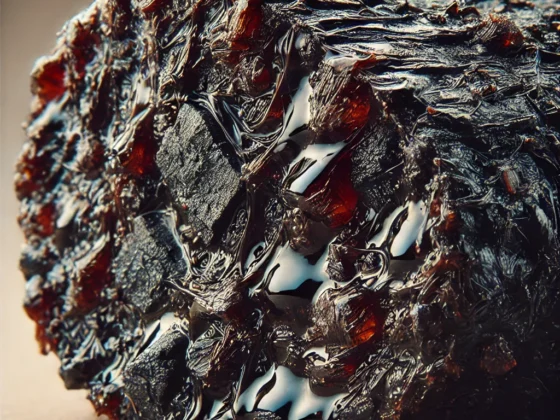What is a Prebiotic Soda and Is It Good for Your Health?

Have you ever found yourself pondering the question, “What is a prebiotic soda?” As a health-conscious individual, I’m always on the lookout for healthier alternatives that benefit my body, and it appears that prebiotic soda is the new buzz in the wellness community. It’s a unique type of carbonated beverage that not only tickles the taste buds but also contains prebiotics, which serve as nourishment for beneficial gut bacteria. Demonstrating the potential to transform our approach to sodas, prebiotic sodas like Poppi and Olipop harness natural ingredients such as apple cider vinegar, chicory root inulin, and marshmallow root, epitomizing the fusion of enjoyment and health. The intriguing part is that these sodas have less sugar than traditional fizzy drinks and provide a substantial fiber content, which is crucial for my digestive health.
In exploring the pertinence of this refreshing option, my article aims to unravel the essence and nutritional benefits of prebiotic soda. With an emphasis on how it supports the immune system and contributes to gut health, I’ll delve into the role of prebiotics in aiding digestion and maintaining a balance of gut bacteria. Additionally, I’ll compare the appeal of prebiotic soda to regular soda and discuss who might benefit the most from incorporating it into their diet. Personal health is a journey, and with every sip, we might be contributing to our digestive health in ways we never imagined. Join me as I consider whether this beverage is a trend worth trying, how to safely introduce it into our diets, and the factors to keep in mind when choosing the best prebiotic soda.
Understanding Prebiotics and Their Role in Gut Health
Understanding the role of prebiotics in our gut health is fundamental, especially when considering dietary choices like prebiotic soda. Here’s how these non-digestible fibers work their magic:
- Feeding the Friendly Bacteria: Prebiotics are a special form of dietary fiber that act as nourishment for the good bacteria in our gut, known as probiotics. These fibers are not digested by our body but instead serve as a food source for our gut microbiome, promoting the growth and activity of beneficial bacteria.
- Sources and Benefits:
- While prebiotic sodas can be a source of these fibers, whole foods such as bananas, onions, and garlic provide a more diverse range of prebiotics that support gut health.
- Regular intake of prebiotics from various sources is linked to numerous health benefits, including better digestion, a stronger immune system, and a decrease in harmful bacteria.
- The Power of Inulin:
- Inulin, a primary prebiotic fiber found in prebiotic sodas, is also naturally occurring in chicory root and other foods. Once consumed, it travels through our digestive system to the colon, where it’s fermented by gut bacteria.
- This fermentation process produces short-chain fatty acids, which have been shown to reduce inflammation, regulate appetite, and maintain healthy blood sugar levels.
Incorporating prebiotic soda into our diet can be a convenient way to boost our intake of these beneficial fibers, especially if we’re not consuming enough prebiotic-rich foods. However, it’s essential to remember that a balanced diet with a variety of fiber sources is the best approach for optimal gut health. Prebiotic sodas might offer a fiber boost, but they shouldn’t replace the wide array of fibers we get from a diet rich in fruits, vegetables, and whole grains.
To understand more about the intricate relationship between prebiotics and gut health, consider exploring the detailed insights provided by Olipop and the comprehensive research discussed by Hartford Hospital. These resources delve into the significance of prebiotics and how they can support our digestive health.
The Appeal of Prebiotic Soda Over Traditional Soda
When I think about what is a prebiotic soda, it’s clear that its appeal over traditional soda lies in several key benefits that cater to a health-conscious lifestyle. Let’s take a closer look:
- Healthier Alternative: Prebiotic sodas come with the promise of potential health benefits, primarily due to their support for gut health. Unlike traditional sodas, they contain prebiotics which are known to foster a healthier gut microbiome. This can be a game-changer for those of us who are mindful about our digestive health and overall well-being.
- Lower Sugar and Calories: One of the most significant advantages of prebiotic soda is its lower sugar content. With just 4-5 grams of sugar per can, it stands in stark contrast to traditional sodas, which can contain a whopping 35-40 grams per serving. This drastic reduction in sugar and calorie intake can be a smart choice for anyone looking to manage their weight or blood sugar levels. For more insights on the sugar content in prebiotic soda, you might find the information on Health.com quite enlightening.
- No High Fructose Corn Syrup: It’s no secret that many traditional sodas are laden with high fructose corn syrup (HFCS), a sweetener that has been linked to various health issues. Prebiotic sodas, on the other hand, do not contain HFCS, making them a more appealing option for those looking to avoid this ingredient.
For anyone trying to cut down on added sugars, prebiotic soda can be a refreshing alternative. It’s not just about what it lacks but also what it offers—support for our immune system, gut health, and digestion. These sodas don’t just quench our thirst; they offer a serving of care for our gut bacteria, which play a crucial role in our overall health. If you’re curious about the differences in sugar content and health implications between prebiotic and traditional sodas, the Hartford Hospital’s article provides a detailed comparison.
By choosing prebiotic soda, I’m not only indulging in a fizzy delight but also taking a step towards better digestive health, without the excess sugar and calories that come with traditional sodas. It’s a choice that aligns with a balanced lifestyle, offering a simple yet effective way to support my body’s needs.
Nutritional Benefits of Prebiotic Soda
Exploring the potential health benefits of prebiotic soda has led me to understand that these fizzy beverages could offer more than just a refreshing taste. Here’s a breakdown of the nutritional benefits they may provide:
- Blood Sugar Management: Prebiotic soda may help in managing blood sugar levels, which is a boon for those monitoring their glucose intake. The fiber content in these sodas can slow down the absorption of sugars, leading to a more stable blood sugar response after drinking.
- Heart Health: By potentially lowering blood sugar levels, prebiotic soda might also reduce the risk of heart disease. Stable blood sugar is linked to lower cholesterol levels and reduced blood pressure, contributing to overall cardiovascular health.
- Digestive Benefits:
- Regular Bowel Movements: A well-functioning digestive system is crucial for health, and prebiotic soda may promote regularity. The fiber acts as a bulking agent, helping to maintain bowel health.
- Mineral Absorption: Improved mineral absorption is another plus. Prebiotics can enhance the absorption of essential minerals like calcium, which is vital for bone health.
- Immune Support: Our immune system is closely linked with gut health. By fostering a healthy environment for gut bacteria, prebiotic soda can indirectly support immune function, making it a potential ally during cold and flu season.
While these benefits are enticing, it’s important to consider the overall dietary context:
- Moderation is Key: Aiming for a daily dose of about three to 10 grams of prebiotics can offer health benefits, but exceeding this may lead to digestive discomforts such as gas or bloating. Most prebiotic sodas fall within this range, which makes them a convenient option for those looking to increase their fiber intake. However, it’s essential to balance this with other sources of fiber in the diet to avoid any potential issues.
- Not a Dietary Replacement: Nutrition experts advise that prebiotic sodas should complement, not replace, a balanced diet rich in fiber. While prebiotic soda can contribute to your daily fiber needs, it’s crucial to remember that whole foods provide a broader spectrum of nutrients and should be the cornerstone of any healthy diet.
- Sugar Content Consideration: Some prebiotic sodas may still have a significant sugar content. It’s necessary to read labels carefully and consider how a prebiotic soda fits into your overall sugar consumption for the day.
For those interested in adding prebiotic soda to their diet, it’s worth noting that a single can could supply up to 9 grams of fiber. This makes it a beneficial choice for individuals seeking to boost their fiber intake. However, as with any dietary change, it’s wise to consider how this fits into your broader eating habits, particularly regarding sugar intake. And remember, while prebiotic sodas can be a part of your fiber strategy, they can’t replace the myriad benefits of a balanced, nutritious diet that includes a variety of fiber sources from whole foods.
To gain more insights into how prebiotic soda can fit into a healthy lifestyle and for a deeper dive into the benefits of fiber, you can refer to the comprehensive resources provided by Good Housekeeping and Healthline. These articles offer valuable information on prebiotic sodas and the role of fiber in digestive health.
Who Should Drink Prebiotic Soda?
Prebiotic sodas, with their touted benefits for gut health and digestion, might seem like a suitable choice for many. However, it’s important to recognize that not everyone should reach for a bottle. Here’s a closer look at who might want to think twice before adding prebiotic soda to their shopping cart:
- Individuals with Sensitive Digestive Systems: If you’re someone who isn’t used to a high-fiber diet, prebiotic soda might lead to discomfort. The introduction of these beverages could cause gas, bloating, or even loose stools. It’s a reminder that any dietary change should be gradual to allow the body to adjust. For those curious about the effects of fiber on digestion, Shape provides insights into how prebiotic soda can impact your gut health.
- People with Specific Gastrointestinal Conditions: For anyone with a history of gastrointestinal issues like irritable bowel syndrome (IBS) or other similar diseases, prebiotic soda may not be the best choice. These conditions can be aggravated by the fibers in prebiotic sodas, potentially leading to increased bloating and gas. Texas Health has a helpful article discussing the importance of consulting with a healthcare professional before incorporating prebiotic soda into your diet, especially if you have underlying health concerns.
- Those on a Restricted Diet Due to Health Conditions: Certain health conditions such as Small Intestine Bacterial Overgrowth (SIBO), IBS, Crohn’s disease, or colitis may require a specialized diet. Prebiotic soda, unfortunately, could interfere with such dietary restrictions and exacerbate symptoms. It is crucial to adhere to your healthcare provider’s guidance and avoid foods and drinks that could hinder your treatment or management of these conditions.
In summary, while prebiotic soda can be a helpful addition to some people’s diets, it’s not a one-size-fits-all solution. It should not be viewed as a shortcut to a well-balanced diet. Instead, it’s best to consider prebiotic soda as one element of a broader strategy for maintaining digestive health, alongside a variety of fiber sources from whole foods. Remember to always consult a healthcare professional before making significant changes to your diet, especially if you fall into any of the above categories.
In summary, while prebiotic soda can be a helpful addition to some people’s diets, it’s not a one-size-fits-all solution. It should not be viewed as a shortcut to a well-balanced diet. Instead, it’s best to consider prebiotic soda as one element of a broader strategy for maintaining digestive health, alongside a variety of fiber sources from whole foods. Remember to always consult a healthcare professional before making significant changes to your diet, especially if you fall into any of the above categories.
In summary, while prebiotic soda can be a helpful addition to some people’s diets, it’s not a one-size-fits-all solution. It should not be viewed as a shortcut to a well-balanced diet. Instead, it’s best to consider prebiotic soda as one element of a broader strategy for maintaining digestive health, alongside a variety of fiber sources from whole foods. Remember to always consult a healthcare professional before making significant changes to your diet, especially if you fall into any of the above categories.
FAQs
1. Can I drink prebiotic soda every day without any health issues?
While individual responses to prebiotic soda can vary, it is generally safe to consume it daily. However, due to its fiber content, drinking it in excess may lead to gas and bloating. It’s recommended to limit your intake to one prebiotic soda per day to avoid these side effects.
2. When is the best time to consume prebiotic soda?
Prebiotic soda can be consumed at any time of the day that suits you, whether that’s first thing in the morning or before you go to sleep. The key to reaping the benefits of prebiotics is to take them consistently on a daily basis.
3. Does Poppi prebiotic soda promote a healthy stomach?
Yes, Poppi prebiotic soda is formulated with Organic Agave Inulin, a fiber derived from agave plants that not only adds a naturally sweet flavor but also supports gut health. By diversifying the gut microbiome and fueling beneficial bacteria like Bifidobacteria and Lactobacilli, inulin can contribute to a healthier digestive system.
4. Are there any negative effects associated with consuming prebiotics?
While prebiotics can be beneficial, they can also cause some adverse effects, especially when consumed in large quantities. These effects include bloating, gas, and an osmotic effect in the intestinal lumen due to fermentation in the colon. Abdominal pain and diarrhea are typically only issues with high doses. Additionally, there has been a recent association between large daily doses of prebiotics and an increase in gastroesophageal reflux.












